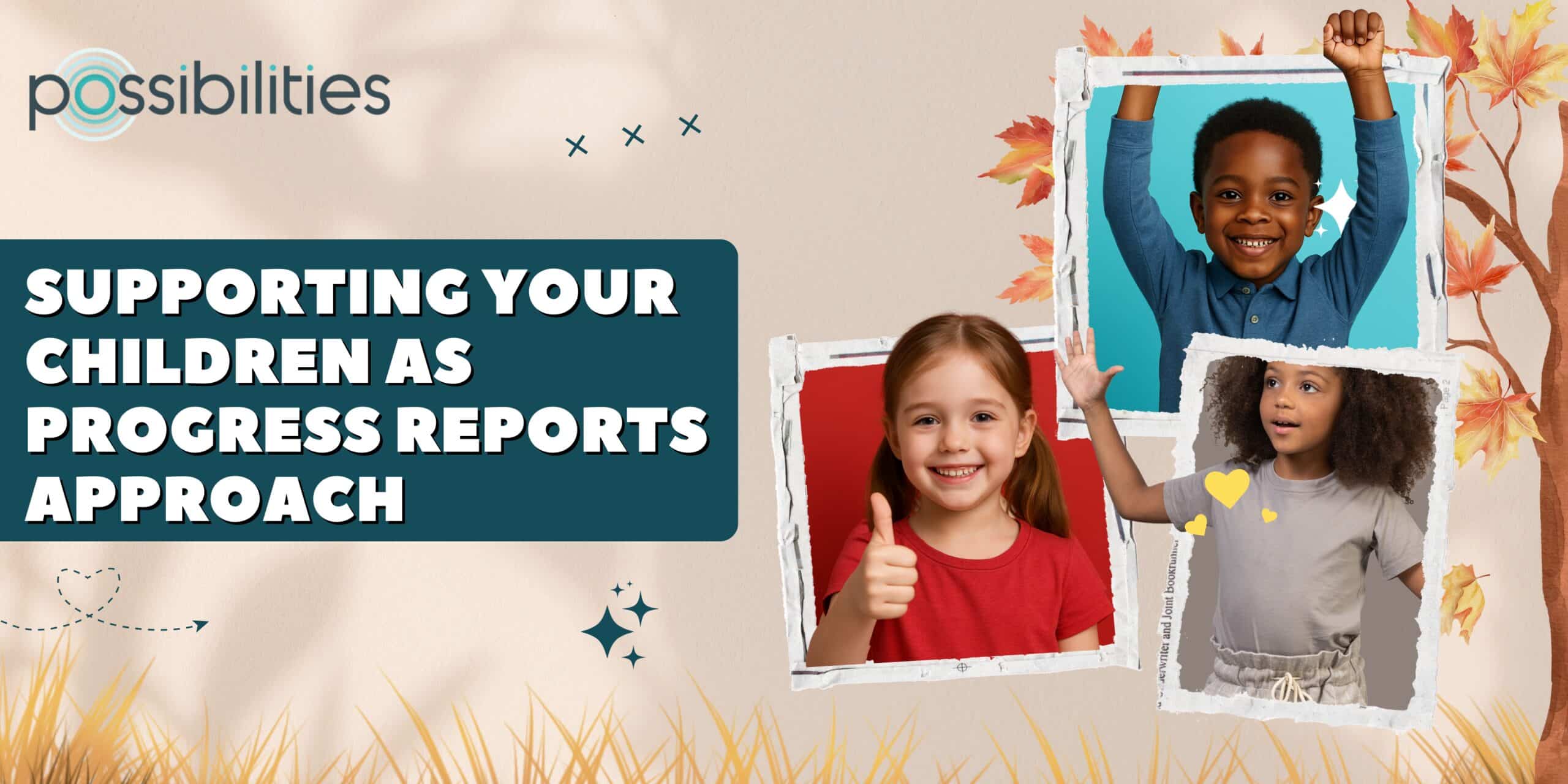
As school progress reports approach, parents often wonder: How is my child really doing—academically, socially, and emotionally? For neurodiverse learners, progress reports can bring a mix of reassurance and new questions.
Ratings on first-term progress reports can provide clues about how classroom support, routines, and relationships are working, and whether adjustments might be needed. This Parent Guide helps you consider progress report ratings while checking in with your child—celebrating strengths, watching for red flags, and partnering with teachers to support ongoing success.
What Progress Reports Really Mean
School progress reports are mid-term reflections, not final grades. They provide insight into learning skills, work habits, and overall progress, including skills like taking responsibility for completing tasks, regulating emotions and behaviours, showing initiative, and collaborating effectively with peers. For neurodiverse learners, these skills can be tough to master. Check in with your child by asking questions. Answers can provide clues about how school support and strategies are working in practice. If your child struggles to provide answers, make an appointment to speak with your child’s teacher to better understand strengths as well as skills that need support.

1. Start the Conversation
Create opportunities for your child to share experiences about school with you naturally—in conversations during walks, car rides, or casual moments at home. Here are some sample questions organized around specific themes to help you notice patterns in mood, social engagement, and academics.

Classroom Environment
- How does your classroom feel most days?
- Where do you sit, and do you like being in your classroom?
- Do you have what you need at your desk or locker?
- Are there times in class that feel tricky?
Social Life & Recess
- Who do you hang out with at recess or lunch?
- What games or activities do you enjoy?
- Do any parts of recess or lunch feel stressful?
- Have you made any new friends at school?
Academic Experience
- What subjects or activities feel easy or fun for you?
- Do any subjects feel hard or frustrating? [If your child says yes, ask which ones.]
- Are the tools or strategies you use helping?
- Do you have enough support and time to complete your work?
Emotional Well-Being
- How do you feel during your school day?
- Did anything today make you feel happy?
- Did anything today make you feel worried?
- Who do you go to for help when you need it?
2. Watch for Red Flags

Beyond asking questions, keen observations can alert you to potential concerns. Signs your child may be struggling—again organized around themes related to well-being—include:
Emotional Well-Being
- After-school meltdowns or shutdowns
- School refusal or morning distress
- Irritability, withdrawal, or negative self-talk
Academic Skills
- Avoiding tasks or homework
- Saying “I can’t do it” or “This is too hard”
- Missing assignments or difficulty using supports
Social Belonging
- Feeling alone at recess or lunch
- Avoiding group activities
- Worrying about classmates
Physical / Sensory Experiences
- Headaches, stomachaches, or fatigue
- Avoiding loud, bright, or crowded environments
- Stress-related behaviours like pacing or fidgeting
3. Understanding School Avoidance
School avoidance is a signal of stress, not defiance, and may appear as:
- Asking to stay home frequently
- Complaining of headaches or stomachaches
- Hesitating to enter school or the classroom
What Parents Can Do:
- Stay calm and validate feelings
- Offer gentle support without pressure
- Collaborate with teachers to ensure accommodations are effective
- Celebrate small steps like attending school or joining one activity
4. Prepare for Progress Reports Conversations

- Read the report on your own first to understand feedback and identify strengths or concerns.
- Choose the right moment to review the report with your child. Avoid high-stress moments, like when your child is tired, upset, or avoiding school. A calm, relaxed time—like the afternoon or weekend—would probably work best.
- Focus on strengths and growth, highlighting effort and small wins.
- Let your child guide participation — some may want to see the report right away; others may prefer a brief conversation first.
- Set one or two achievable goals as you consider progress in each area (e.g., using a tool consistently, practicing a social skill, improving a work habit)
- Reach out to the teacher or learning support team if your child is struggling. Early communication helps prevent challenges from escalating.
5. Celebrate Growth — Big and Small
Small achievements matter. Here are some reasons to celebrate:
- Completing tasks with less support
- Asking for help when needed
- Trying new social activities
- Using coping strategies successfully
Remember:
Progress reports are a snapshot, not a verdict. By observing, reflecting, and collaborating with your child and school, you can help your child feel capable, understood, and supported.
Progress isn’t about perfection — it’s about growth, effort, and resilience.

Need Guidance? Our Parent Advocacy Service is Here to Help.
If you’re looking for guidance in navigating your child’s learning journey, our Parent Advocacy Service is here to help.
We can assist in several ways—from choosing the right type of assessment for your child, to understanding, prioritizing, and connecting with the best services and supports once the assessment is complete.
We also help families navigate the education system, offering support as you prepare for IPRC meetings and ensuring any Individual Education Plan (IEP) reflects your child’s unique strengths and needs.
What we do depends on what you and your child need. Together, we’ll create a Personalized Plan that supports your child’s growth — and if you need help putting that plan into action, we’ll be there to guide you every step of the way.








